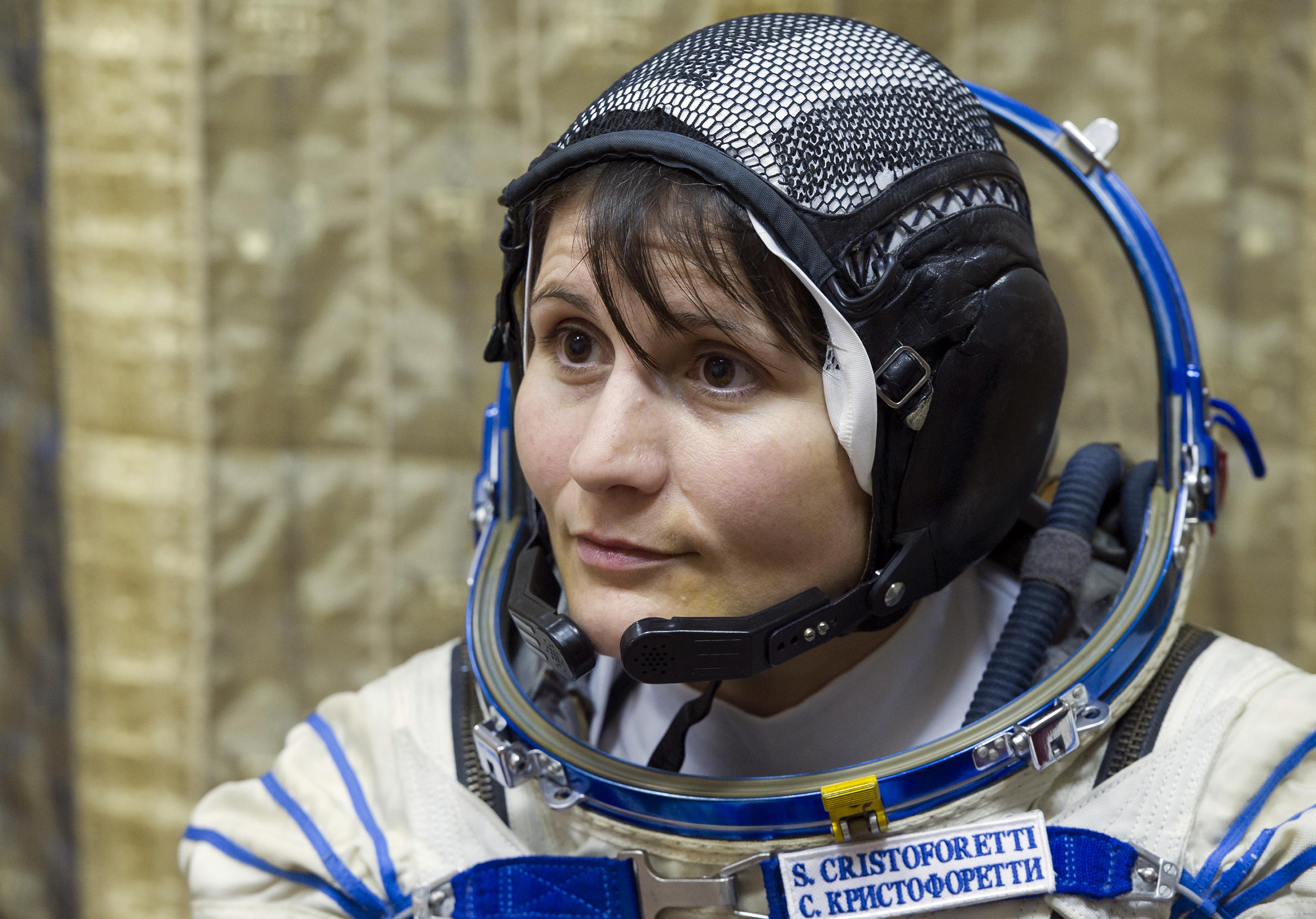“We are at a point in history where a proper attention to space,” wrote legendary anthropologist Margaret Mead, “may be absolutely crucial in bringing the world together.”
Mead also opined about the need to rid space travel of sexism in her little-known column in Redbook during the 1960s and 1970s, but this line of hers is often quoted by professional and amateur space geeks alike to describe the sense of technological possibility and international fellowship space travel has symbolized.
Today that spirit of cooperation and innovation has a new symbol: a cup of coffee. Or, to be more exact, a cup of really good espresso—the only part of home that Italian astronaut Luca Parmitano said in 2013 that he really missed during his stay on the International Space Station. Luckily for Luca and his successors on the ISS—including fellow Italian astronaut Samantha Cristoforetti, who is currently in space—engineers at aerospace firm Argotec and prominent coffee company Lavazza back in Torino were already on the case.
In partnership with ASI, the Italian space agency, Argotec and Lavazza have produced ISSpresso (get it?), a capsule-based machine that promises to deliver “a perfect espresso” in the weightless environment of space. Microgravity complicates literally every action astronauts perform in space, and liquids are particularly tricky to deal with up there. With this new appliance, however, they can insert a pouch of water, add a capsule of espresso, press “brew,” and voila! Caffeinated bliss.
ISSpresso has been in the works for several years, and on Tuesday, SpaceX’s Dragon capsule successfully launched carrying the machine, which is about the size of a microwave and built to withstand vibration and very high pressure. It’s scheduled to be delivered Friday to Cristoforetti and her compatriots aboard the ISS. Cristoforetti tweeted the launch (with the hashtag #HomeDeliveryFromPlanetEarth), “We watched live! Amazing to thing that in 3 days #Dragon will be knocking on our door.”
This development is certainly a groundbreaking, though upon first glance, ISSpresso might also bring to mind the (in)famous episode of how Americans and Russians supposedly addressed the need for writing implements in space. (This apocryphal tale, already legendary but further popularized by an episode of The West Wing, goes something like: We spent millions developing a pen that would work in microgravity; they used a pencil.) But ISSpresso is different, because enjoying a good cup of coffee is a ritual that can easily be an individual and collective reminder of the comforts of home. As a social binding agent, the warm caffeinated stuff also helps us spin odd friendships from the disparate threads of random conversation around the coffeepot—not to mention keeps us buzzing and alert to new ideas. Analogically speaking, the elements that symbolize the best of space travel—cross-cutting partnership and collaboration, problem-solving, relationship-building, and the energy and enthusiasm to push ourselves further (whether that means finishing inventory or probing the frontiers of human knowledge and experience)—match up with the energy and social exchange generated by enjoying coffees together.
Such an analogy between space travel and the perfect cup of coffee as vehicles for technological innovation and friendship may seem like a stretch to some, but perhaps not to Michael Haft and Harrison Suarez, founders of Compass Coffee, a roastery and shop in Washington, D.C. Haft and Suarez became friends during college and training at Camp Lejeune before both deployed to Afghanistan. As Marines, they drank military coffee that was “disgusting, but it has the caffeine and it keeps you awake,” as Haft told the Washington Post in September 2014. When they were back stateside, they started learning as much as they possibly could about coffee-roasting technology and decided to write an e-book (the first step on the path to opening their now-thriving business) unsurprisingly titled Perfect Coffee at Home.
Like the Compass founders, Lavazza agrees that coffee can make improbable things possible. “Italian coffee is a beverage without borders,” says vice president Giuseppe Lavazza in a press release. The company’s website says that it expressly intends its innovative gadget to brew up social exchange along with espresso:
The “corner café” on the ISS will be the hub for socialising on board the Station, a sort of social network in space, a venue for getting together, chatting and relaxing: an aspect that should not be ignored in missions that keep the astronauts away from home for many months in a very challenging environment.
David Avino, Argotec’s managing director, agrees. “Everybody can join,” he told NPR’s food blog the Salt. “And this will be a great occasion, you know, to all meet together and have a coffee all together on the station.”
The collaborative work necessary on the ground to put ISSpresso in orbit is exciting in and of itself—imagine if Starbucks and Boeing had done such a thing in tandem with NASA. Putting espresso in space will add some extra kick to the idea that astronauts boldly go where few (at this point) have gone before. In the meantime, bringing astronauts from different countries to a well-heeled coffee klatch may not have been what Margaret Mead had in mind, but it is indeed a way of bringing the world together, one cup (or more likely, two or three) at a time.
